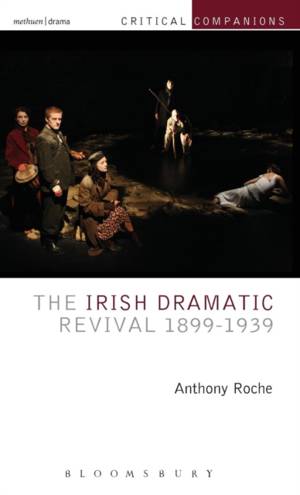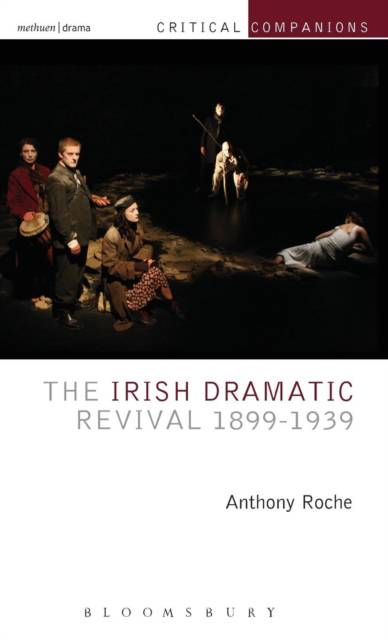
- Retrait gratuit dans votre magasin Club
- 7.000.000 titres dans notre catalogue
- Payer en toute sécurité
- Toujours un magasin près de chez vous
- Retrait gratuit dans votre magasin Club
- 7.000.0000 titres dans notre catalogue
- Payer en toute sécurité
- Toujours un magasin près de chez vous
203,95 €
+ 407 points
Description
This is a fresh reassessment of the work of the principal playwrights associated with the Irish Dramatic Revival, a movement that was to radically redefine Irish theatre and see the birth of the world's first national theatre, the Abbey, in 1904. The work of O'Casey and Synge has had a profound influence on generations of writers and remains key to the study of modern drama, whereas work by Yeats and Lady Gregory has received renewed attention among theatre makers and scholars owing to their radical innovation and range.
From a consideration of the twin strands of Irish drama prior to the revival, Anthony Roche considers the work of Synge and his experimentation in the creation of a new national drama that drew on native sources while developing a modern and prophetic form of theatre. He explores the role of Yeats as founder and playwright; the role of women and in particular Lady Gregory as producer and dramatist; and the playwrights who emerged following independence. O'Casey's ground-breaking Dublin plays receive detailed consideration, and the new Irish modernism that followed in the 30s and which also witnessed the founding of the Gate Theatre in Dublin.
The Companion also features a number of essays from other leading scholars and contemporary practitioners offering a variety of critical perspectives on this period of radical change and development in modern Irish theatre.
From a consideration of the twin strands of Irish drama prior to the revival, Anthony Roche considers the work of Synge and his experimentation in the creation of a new national drama that drew on native sources while developing a modern and prophetic form of theatre. He explores the role of Yeats as founder and playwright; the role of women and in particular Lady Gregory as producer and dramatist; and the playwrights who emerged following independence. O'Casey's ground-breaking Dublin plays receive detailed consideration, and the new Irish modernism that followed in the 30s and which also witnessed the founding of the Gate Theatre in Dublin.
The Companion also features a number of essays from other leading scholars and contemporary practitioners offering a variety of critical perspectives on this period of radical change and development in modern Irish theatre.
Spécifications
Parties prenantes
- Auteur(s) :
- Editeur:
Contenu
- Nombre de pages :
- 272
- Langue:
- Anglais
- Collection :
Caractéristiques
- EAN:
- 9781408175279
- Date de parution :
- 23-04-15
- Format:
- Livre relié
- Format numérique:
- Genaaid
- Dimensions :
- 140 mm x 216 mm
- Poids :
- 462 g

Les avis
Nous publions uniquement les avis qui respectent les conditions requises. Consultez nos conditions pour les avis.






